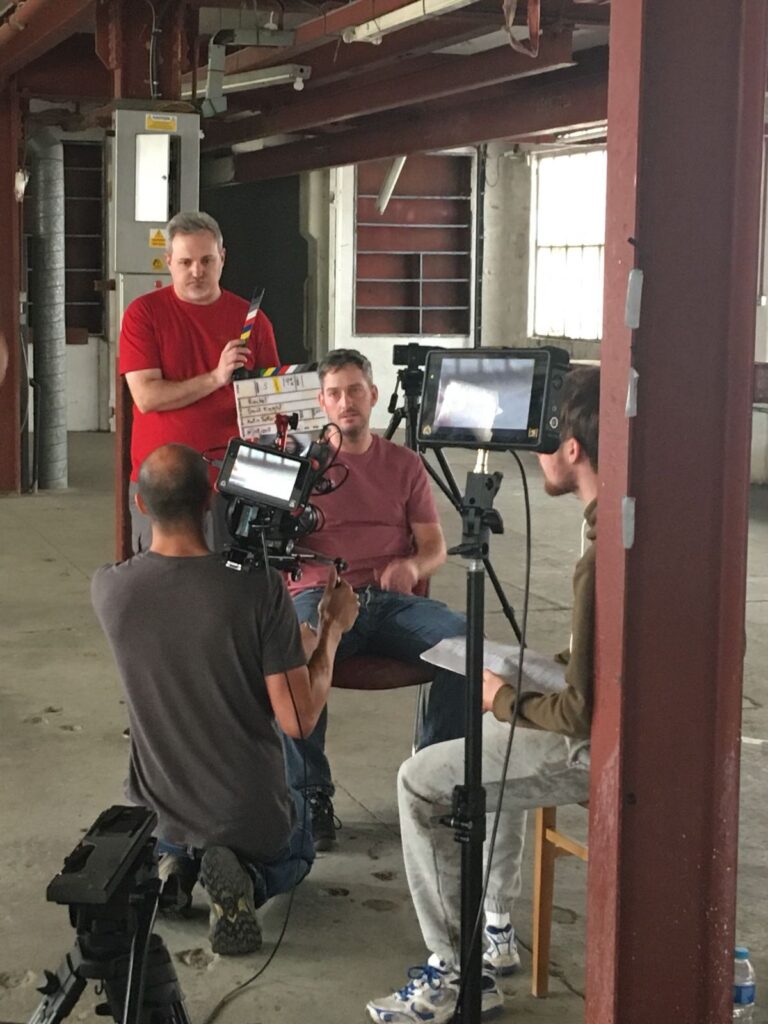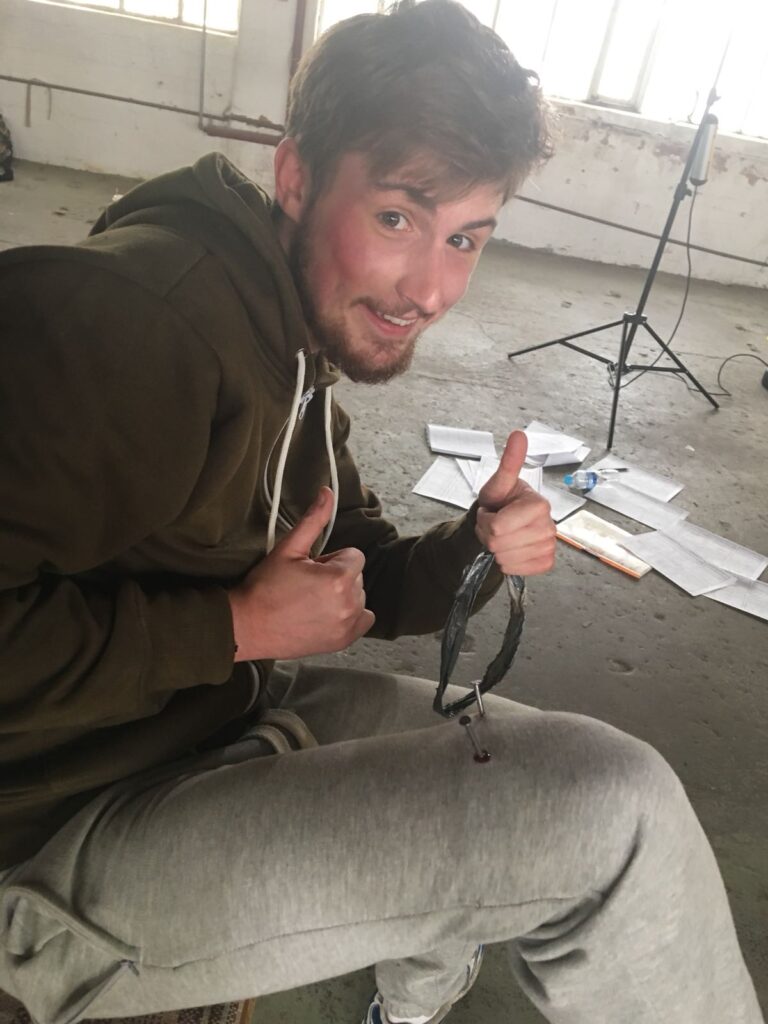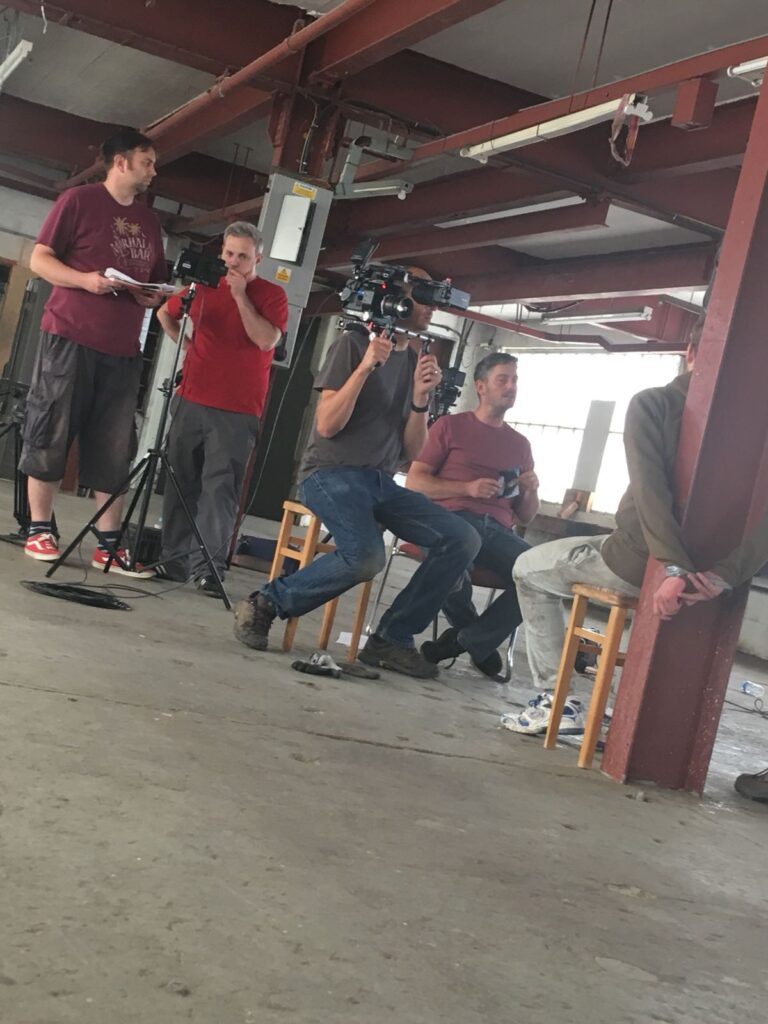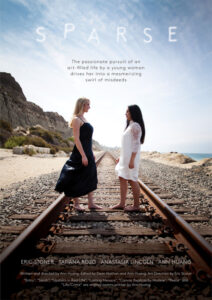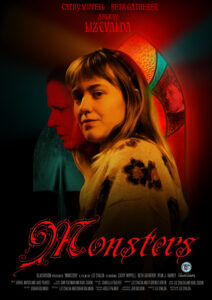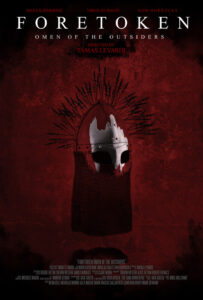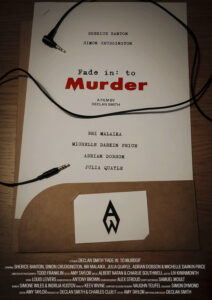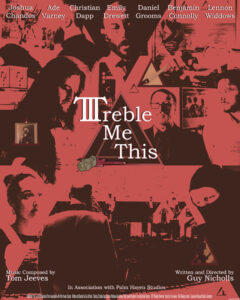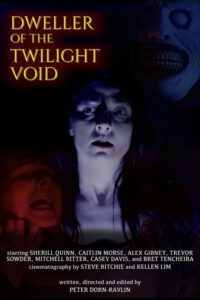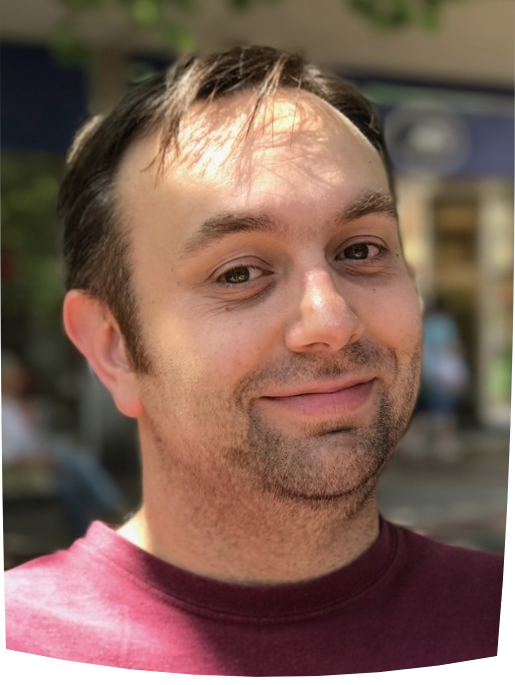
David Knight
David Knight started his journey to be a filmmaker at the age of 21 when he walked away from a bar management career of 3 years to start a new career within the film and television industry. Having only an ambition and a love of films he enrolled at Solihull College on a Media and Production Course. After the first 6 months his first short film Rendezvous, was handpicked to be part of the official selection of the 2004 Stourbridge film festival where it received favourable reviews.
He completed his course at Solihull College and received a HND with distinction, then moved onto the University of Gloucestershire to study a degree in Video Production. In his final year, he wrote and directed two short films. The first, 2’s Company a romantic comedy, was part of the official selection at the Viewfinder Film Festival in 2006 and received excellent reviews from the festivals patrons. After working on a separate project as editor to hone his skills, he then went on to make his final film Hit or Miss a dark drama, which won him the Screen Writers Festival Award for Best Writer / Director 2007.
After Completing university, David directed numerous projects which include music videos and a series of internet viral’s chronicling the making of 2008 digishorts film Spirited. David then decided to then focus on writing while building his industry experience as a 1st A.D and a freelance editor.
In 2018 David returned to directing with his powerful short film Suicide Blonde. Which received five nominations and win 2 awards including “Best Local Film” at the 2018 Birmingham Film Festival.
We had the great pleasure of interviewing him for the June 2020 Edition
[MIS] Hi David, Thank you for granting us this Interview, from freelance editor to 1st A.D, what pushes you to return to directing in 2018?
[DAVID] Hi, thanks for having me. Well when I went to university it was always my plan to be a writer/ director, but knowing that it was unlikely I would be able to walk into a directing job straight out of university I chose to develop my skills as an editor to give me more opportunities.
Once out of University I found work as a freelance editor and also as a 1st A.D, while developing my own projects. But with the arrival of my second child my priorities started to change and I decided to leave the world of film production behind me.
Skip forward to 2016 and after a fantastic experience helping a friend with an episode of his YouTube show I realised that the filmmaking bug was still alive and well. Not long after that I wrote the script for my award winning short film Suicide Blonde and with the help of a friend from my University days was able to make the film in 2018. But before I had even submitted it to festivals, I moved onto my next project, RACHEL.
[MIS] Do you think that being an editor helped you to be a director and vice versa?
[DAVID] Yes definitely. As a freelance editor I spent a lot of time working on event and corporate films. I would be handed a basic brief, the footage and expected to create a coherent native. It really helped me to develop my problem solving and visual storytelling skills, which transferred to when I’m directing. Allowing me to edit the film in my head, changing, combining and even losing shot’s altogether while on set. I also believe that my experiences have allowed me to develop a more rewarding working relationship with the editors that I have collaborated with on my projects.
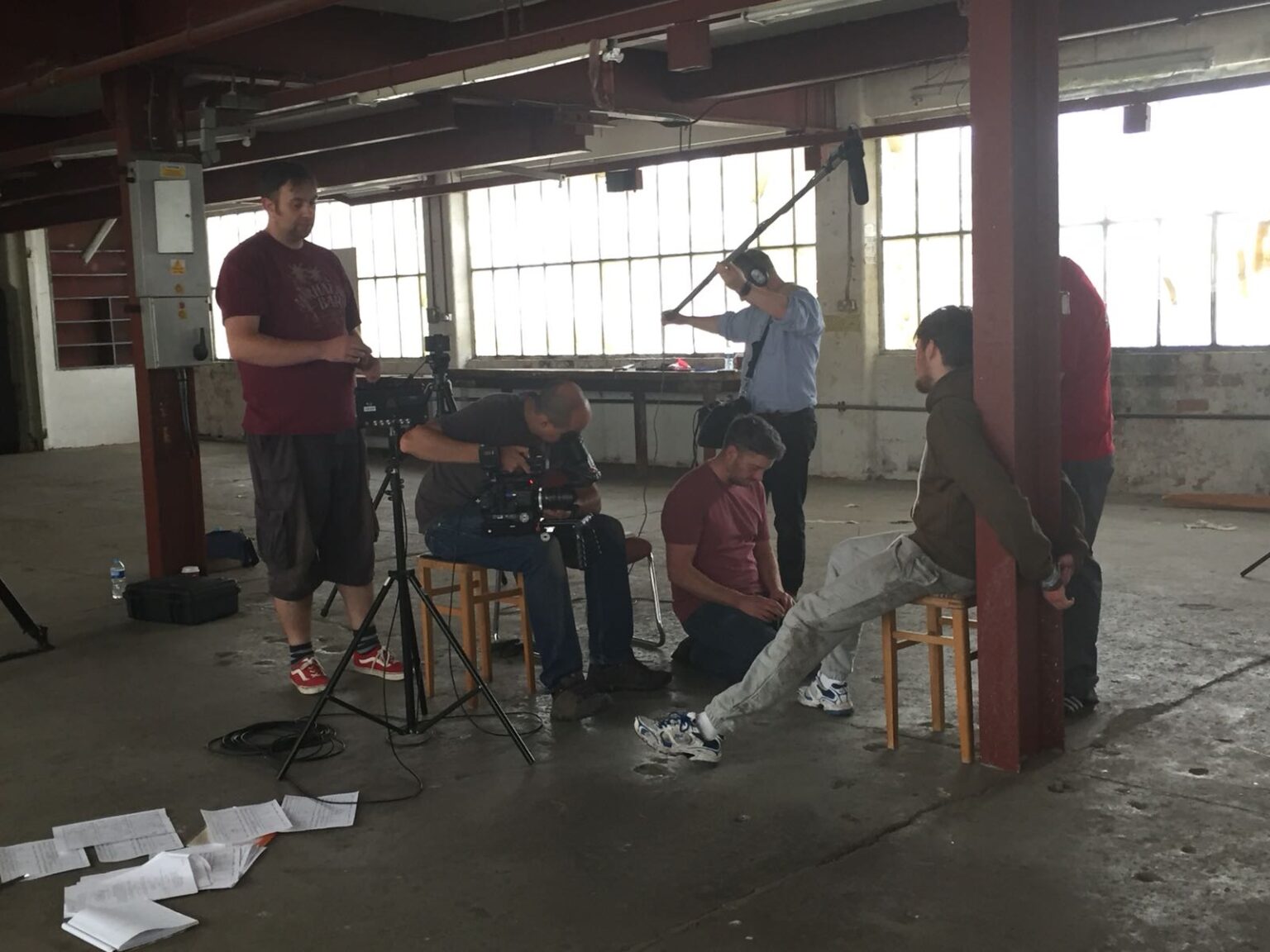
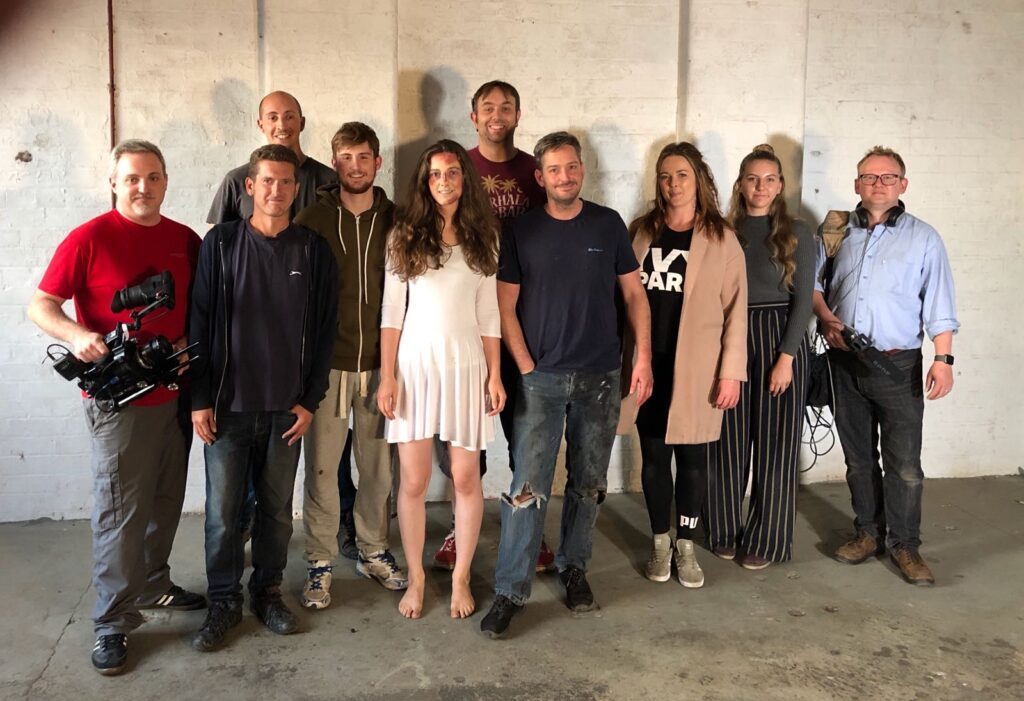
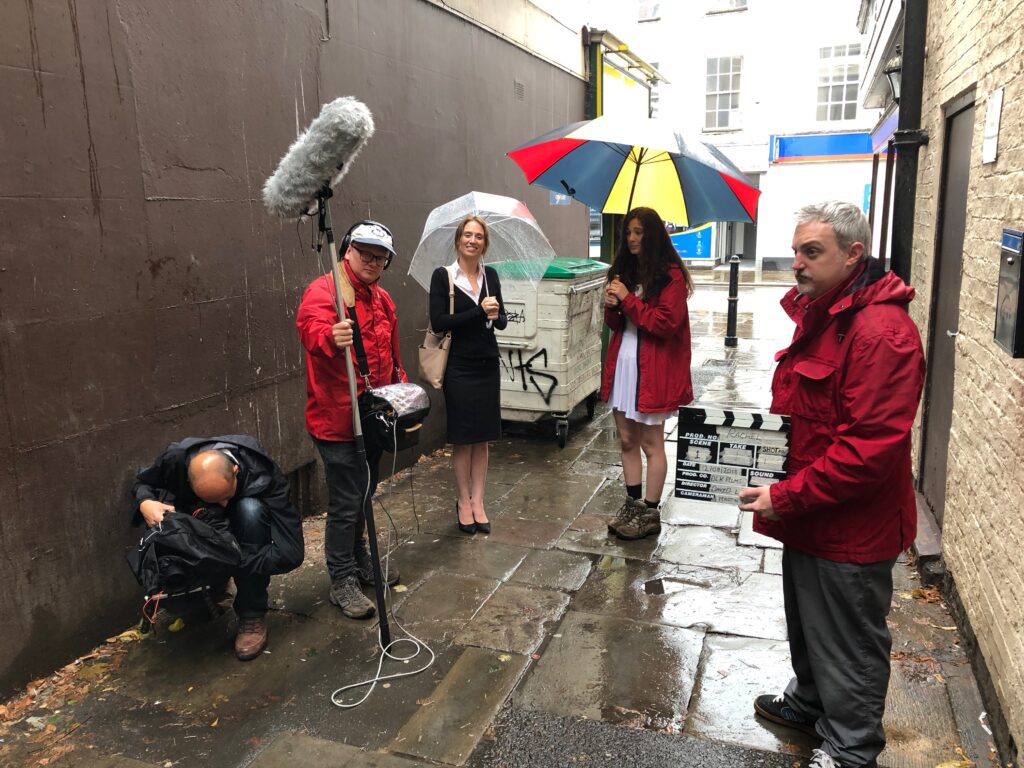
[MIS] In Rachel, why did you describe the movie as a “supernatural revenge film”.
[DAVID] That’s a good question. In earlier drafts of the script, there was no ghostly apparition. It was a simple story of a father looking to take revenge for the loss of his daughter. But when I was writing the script I kept asking myself how do I pitch this. What is it’s hook? Then I remembered seeing a still from David Lowery’s film “A Ghost Story” of a person dressed in a sheet stood behind another character and it got me thinking. What if the daughter was still here, a supernatural character influencing the events that transpire. Allowing her to take her revenge. So from that point on I pitched it as “ a supernatural revenge film”.
[MIS] What do you expect from the audience to see?
[DAVID] One of the things I love about films is that everybody that watches a film can pull something different from the experience. But my hope is that the audience’s walks away from the film thinking how loss can affect a person’s state of mind and that an act of revenge can never be justified.
[MIS] You refuse to describe Rachel as a horror short, in which drama genre can you classify it?
[DAVID] You’re right I don’t like to describe RACHEL as a horror short. Even though it dose have elements that lend itself to the Horror genre, the story is not driven by them like a horror film often is. My intention was to tell a story that was driven by the suspense and the drama between the two central characters, which with the added mystery of Rachel’s character helps in my opinion to classify the film as a thriller. Which a lot of the time places the film in horror categories.
[MIS] Rachel sets up a number of intriguing mysteries like reservoir dogs, did you get inspired from it?
[DAVID] The short answer to this question is yes. To be honest Quentin Tarantino is so imbedded in our popular culture that you would be hard pressed to find any filmmaker that isn’t inspired by some element of his work. However when I first start working on a new idea I try to find a broad array of materials to help inspire me. Books, films, music and news articles can be a massive influence on me as I write a script.
[MIS] How you choose your actors and actresses?
[DAVID] In the past when I wrote a script I tried not to have any fixed ideas on what a character will look like. So when I go onto casting websites I’m open to all possibilities, which is what I did with Suicide Blonde. But in regards to RACHEL I only cast two roles using casting websites. In fact I wrote the character of Richard with David Pritchard in mind. He had a small role in Suicide Blonde, which he was great in and I knew that I wanted to give him a bigger role in my next project. The other roles where filled by recommendations and social media.
[MIS] What did you enjoy mostly in directing Rachel?
[DAVID] That’s a hard question to answer, as I enjoyed the whole process, which I would say is mostly attributed to the cast and crew really coming together to make the best film possible. It was a really rewarding and collaborative experience.
[MIS] What about the color palette of the short? Why did you choose the bluish and cold tones?
[DAVID] My intention with the colour palette was to give the audience a sense of the emotional state of the characters. An emotionless sense of being, where the humanity was draining away from them, for example a father engulfed by his search for revenge and the ghostly girl loosing the memory of what it means to be alive.
[MIS] Tell us about a story on set, during the shooting of Rachel.
[DAVID] In the final moments of the film, Rachel sits on Alex’s lap as he screams. Originally I had intended to shoot those shots with no special make up on the actress face. But at the last minute the actress said she thought that it would look more terrifying for Alex if she looked bruised and bloody. We were running behind and I was unsure about spending the extra time on redoing the SFX make up for one shot, but in the end and with the full support of the crew we managed to get one of the most striking images of the film.
[MIS] What about “Lucky” and your future projects?
[DAVID] My next project is “LUCKY” a romantic fantasy story. Which is a bit different from my previous films, but after watching so many dark toned, socially relevant stories I wanted to tell a story that was lighter and more family friendly. I was meant to be shooting the film in April of this year. But due to COVID 19 it has been put on hiatus until lockdown restrictions get lifted enough for us to get out and shoot it. I’m also currently working on a coming of age story set during the 90’s Britpop scene and another that deals with ASD in grown ups.
[MIS] Any final thoughts at the end of this interview?
[DAVID] With the current global pandemic the future of independent filmmakers can look uncertain, even more so with so many of the film festivals we depend on postponing or cancelling. It’s great to see strong online offerings like Monthly Indie Shorts stepping up and giving independent filmmakers like myself a platform to showcase and promote our work. I look forward to seeing how the team continues to develop the festival in the coming months and years.
